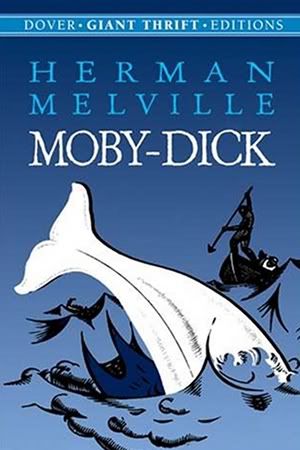
Climber frontman Michael Nelson just reached out to the Bad Penny to take part in our “What You Readin’ For” series, in which literature and music flirt. The vocalist/pianist/multi-instrumentalist submitted a series of deep thoughts on his latest read: Herman Melville classic “Moby Dick.”
If you find Nelson’s erudite essay as provocative as the Bad Penny did, you may have interest in his electronic-infused indie-pop band’s new album, The Mystic, which plops October 14.
—
I’m in the thick of Melville’s “Moby Dick,” and while I knew it was canonical, it has wildly surpassed my expectations. It is broader, more varied and more philosophical than I had ever thought. It is more informative than I expected. Should I ever need to expound upon Yankee whaling in the mid-19th century to a curious inquisitor, I will be amply prepared. But the biggest surprise of all is the humor: The Whale is filled to the brim, like so many drums of gurgling spermaceti, with wit and charm. For whatever reason, I had assumed (something one is frequently warned against) it was dry and Puritanical. It is not.
When I first attempted to read the great leviathan I was no more than 15 years old; I don’t believe I made it past the second or third chapter. The interminable sentences, whole paragraphs made up of endless digressions all springing from one continuous thought, were just too much. Yes, Melville is not to be read casually by 21st century man. One musn’t power on the iPod and shuffle a playlist and still hope to penetrate his prose. If one reads at night, and a hectic day weighs heavily on his mind, he should close the novel resolutely and open it only when his head is clear. Foolishly, I tried to peruse it while waiting for a new set of tires in a crowded showroom with college athletics on the television and pneumatic tools operating in the background. I comprehended very little.
I think many would agree that what we reap from any book at a particular moment in our life is heavily comprised of what we sow into it; I am scattering seeds of spiritual confusion into whatever surfaces will swallow them. So it is no surprise that I’m getting all kinds of these messages from “Moby Dick.” Ishmael’s realization that Queequeg’s devotion to Yojo is not so very different from his own Presbyterian practices felt like my own. And when Melville jabs the stuffy students of philosophers, I cheer him on. He’s right: there is real life to be lived; why just read about it?
And yet read on I will, because I like this book. It helps me to remember that people haven’t changed over the past century and a half. We’re still prejudicial, petty, adventurous, mean, compassionate, self-sacrificing, audacious creatures, trying our best (sometimes) to navigate treacherous seas. We still see others’ fatal flaws much more clearly than we see our own. We still envy our superiors and abuse our subordinates. I never expected to see all of that from a story of a deranged, revenge-bent whaleman.
No comments:
Post a Comment